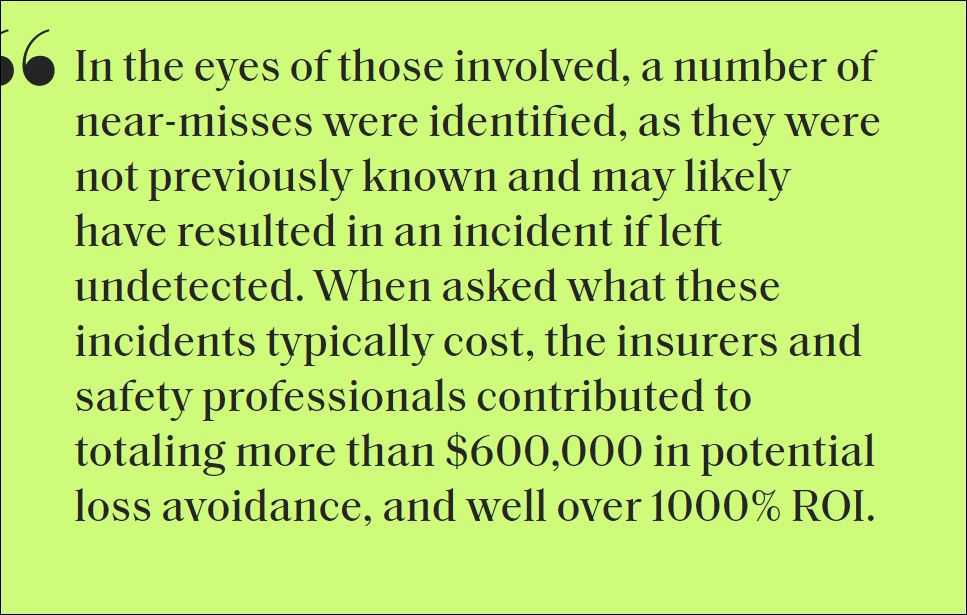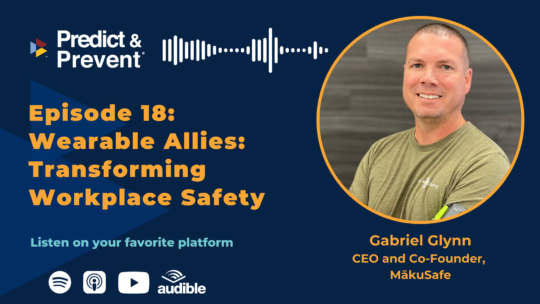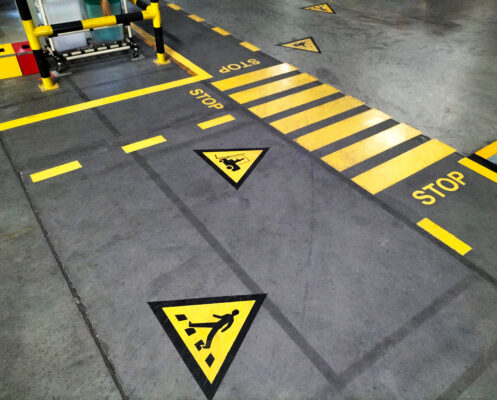Wearable safety tech to reduce risk & claims
August 6, 2020
The MākuSafe Story… appeared recently in this publication of the Council of Insurance Agents & Brokers
For Gabriel Glynn, CEO and Co-Founder of MākuSafe, industrial safety is a very personal issue.
Over 100 years ago, his great grandfather happened to exit the factory he worked in to go home for a dinner break just shortly before an explosion killed or injured many co-workers. “People read articles about us and call us, and they say, ‘Hey my brother died in a work accident. My family is praying for you guys.’ That stuff gives me chills. The reality is, here we are 101 years after that explosion in Cedar Rapids, and too many people aren’t going home from work. We are significantly better but we can still be better yet.”
His dad was a machinist for decades, before becoming a safety manager. While visiting his dad’s distribution center to take him to lunch in 2015, Glynn witnessed a regulatory body show up for an audit to determine whether a worker had lost his hearing due to sound exposure on the job. Lunch had to wait, but Glynn began asking questions about hazards, how they’re measured, and why in this time we weren’t already using technology to gain insight into potential problems before accidents occurred.
Glynn remained focused on the concept of using IoT sensors to collect relevant data from individual workers and in real time identify potential risks or notify leadership when conditions are becoming unfavorable. He partnered with a friend, MākuSafe Co-Founder and CTO Mark Frederick, who had an IoT cloud computing background, and they set to work on the idea, each making an initial investment. A few months later in 2016, MākuSafe was formed and they had an alpha prototype device as proof of concept.
By mid-2019, five generations of the MākuSafe wearable and its base station kiosk had been iterated and beta tested in facilities along the way. The first small manufacturing run of production design hardware was created and paired with the accompanying SaaS cloud platform called MākuSmart. This go-to-market version of the solution was deployed to numerous industrial facilities in six U.S. states for a final round of pilots. The environments ranged from light manufacturing, machine shops, and warehouses, to heavy industrial such as a steel foundry. In some of these facilities the insurer had arranged for the pilot so both could see the resulting data. The findings were significant.

Read the full story on LeadersEgde.com





